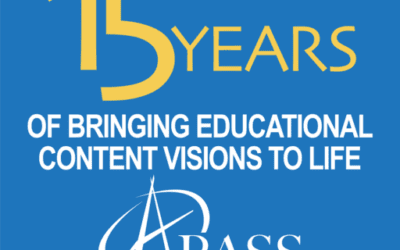COVID-19 has pushed virtual learning into the spotlight. Institutions of Higher Education (IHE) and K-12 school districts are now teaching students online. Overnight, teachers moved their face-to-face (F2F) courses to a virtual setting. Lots of schools shifted to an online setting in the spring. Many schools are kicking off this fall remote. Some institutions are launching online programs without a clear grasp on how this step impacts education. Furthermore, publishers should be aware of three main challenges schools are facing.
Challenge #1: LMS Learning Curve
Lots of instructors may not have used the LMS. Many teachers make use of the LMS only to record attendance and grades. Institutions have not used the full extent of their LMS. Now, schools find themselves needing to train their staff on LMS tasks. Likewise, providers may find themselves partnering with more institutions to move materials from F2F to virtual settings. Publishers will find layered challenges that impact education in this task.
Publishers will need to be aware that teachers will be learning both the LMS and the virtual classroom management tools. Providers will need to be alert to the fact that teachers use and troubleshoot tools, such as cameras and microphones. These tech tools enable effective online training. Besides that, teachers are the go-to tech help for parents. In the remote classroom, parents are the learning guide. Teachers will find themselves explaining how to use the LMS to parents and guardians. Publishers will need to pivot to provide materials which work in both F2F and online environments.
Likewise, this at-home learning guide may pose unforeseen hiccups that impact education. Content developers need to be aware of these issues. Guardians may not speak English. Grandparents may not be tech savvy. Foster parents may not be up to speed on their new child. Parents may be logging in from a homeless shelter. A student’s parents could be hearing impaired or blind. In a F2F setting, teachers are able to steer through these situations. Publishers need to be mindful that the learner’s home environment is now more visible in the classroom. Also, publishers may have to teach the differences between remote and online learning.
Challenge #2: Remote Learning vs. Online Learning
Photos of frustrated learners in front of computers circulate on the internet. Teachers are learning that simply posting F2F content on an LMS does not work. Content designed for F2F teaching does not translate in an online learning setting. Remote learning leaves learners feeling confused, overwhelmed, and less engaged. Remote learning is not effective in an online setting. More importantly, online learning is designed to be effective in a virtual setting. Content developers aware of the difference can create interactive content. Also, publishers are able to focus on the social aspect in virtual courses. Whereas teachers are pushed to focus on the task. Publishers provide a blend of synchronous and asynchronous learning tasks. Likewise, these crafted assignments include rich media and interactive learning events. These individual learning journeys let students forge their own paths. Providers pepper scenarios and case studies throughout materials. As a result, the programs are designed for implementation in concert with the LMS. Successful teachers are trained to use both the content and the LMS. This leads us to the last challenge.
Challenge #3: Implementation
Asking teachers to act in a virtual setting without training is risky. Some teachers will thrive. They will put in the extra time and hard work to create effective courses. Other teachers will not succeed. They will forget steps. This will have a negative impact on students. Institutions must train the teachers how to use the system. Unfortunately, LMS training takes time. Time many teachers do not have. Instructors may be reluctant to learn a new system. Many instructors will need remote LMS training. COVID-19 makes district-wide system implementation difficult. Not knowing how to use the LMS has a negative impact on education. As a result, providers risk a strong online program being dropped due to a teacher’s lack of LMS know-how.
In sum, teachers have done an amazing job. Overnight, instructors pivoted to teach students during an unprecedented time. Likewise, the next step for publishers is to help institutions overcome these three main obstacles. The first step in being a partner is to be aware of the challenges.




